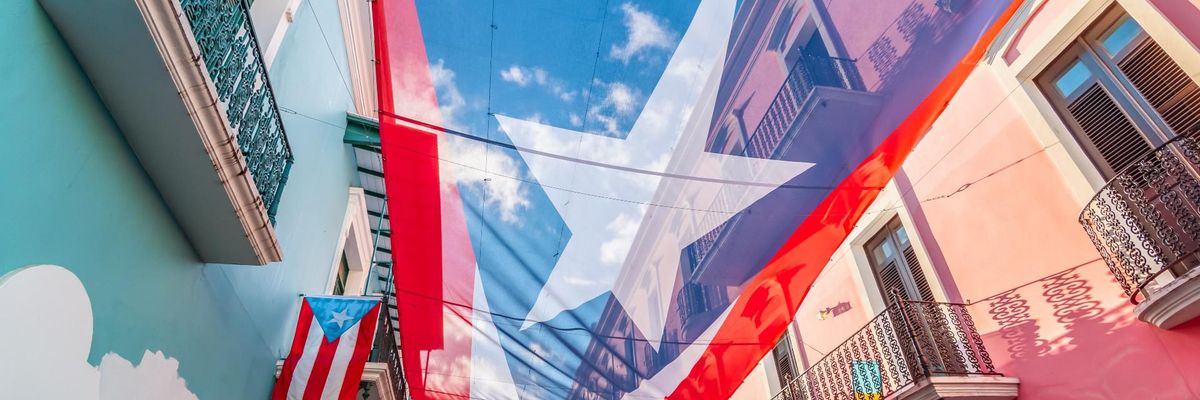Bipartisan Puerto Rico Status Act Presents A New Path for the Island

Puerto Rico, a small island in the Caribbean, has a complicated history with the United States. The Jones Act enabled those born in the former Spanish colony to be drafted into wars on behalf of the U.S. in exchange for citizenship. The island's relationship with the U.S. has been fraught with conflict ever since as those on the island fought for their freedom to fly their flags and keep their culture alive.
So what now?
With the primary political parties of the island being either pro-statehood (PNP) or anti-statehood but pro-commonwealth (Popular), independence for the island never seemed like a real option - until now.
For decades, a call for the reclassification of the island's commonwealth status has been popular among activists. Puerto Rican legendary activist Pedro Albizu Campos was famously prosecuted by the U.S. for leading the Nationalist movement in the 1960’s that called for the island to be an independent country. Despite U.S. efforts to dissuade activists, independence has always been attractive for those that feel that being classified as American doesn't make sense for Puerto Ricans with such stark differences in culture, language, and tradition.
Enter the Puerto Rico Status Act. House Majority Leader Steny Hoyer (D-Md.) leads the group negotiating the bill, including Reps. Darren Soto (D-Fla.), Nydia Velázquez (D-N.Y.), Alexandria Ocasio-Cortez (D-N.Y.), and Puerto Rico Resident Commissioner Jenniffer González-Colón (R). The Act itself proposes a clear path for the island for the first time in history, led by their voters: statehood, independence, or independence with free association.
Puerto Rico's current commonwealth status essentially grants the island the same rights as a state - but without giving the people living there the ability to vote or represent themselves to the federal government. Instead, the island is granted one Resident Commissioner - a non-voting role intended to represent the island's interests to the U.S.
However, given how difficult it has been for the island to get aid when most needed, especially in the wake of natural disasters such as Hurricane Maria, it is argued that this role is purely ceremonial and doesn't serve any actual purpose to those it is meant to serve.
So between the three options, which is best for Puerto Rico? With the two primary political parties remaining divided and the possibility of remaining a commonwealth off the table, statehood or independence with free association remains favorable possibilities. Free association includes existing as an independent country but with a comprehensive agreement that maintains diplomatic, economic, and military relations with the United States.
The controversy behind allowing people to vote for self-determination is a result of elections on the island historically having low voter turnout, making many believe that elections aren't an accurate representation of the actual opinions of the majority of the island's residents. With two referendums held in favor of statehood (the last in 2020), the Puerto Rican Status Act would be the first bill holding the U.S. government accountable for doing something about the world's oldest colony's status.
After 122 years of being held as a territory, the Act is a significant first step in allowing the island’s self-determination.
Congresswoman Alexandria Ocasio-Cortez spoke at length with journalist Bianca Graulau below about the Act.www.youtube.com












 Photo by
Photo by 

